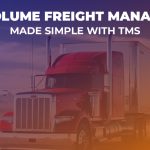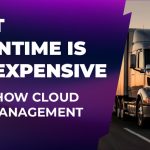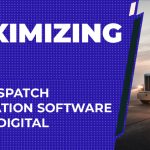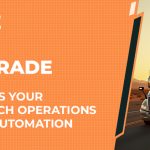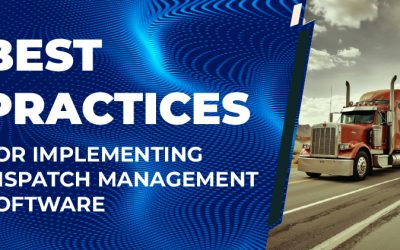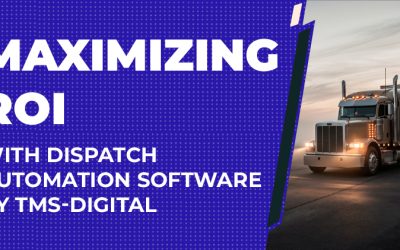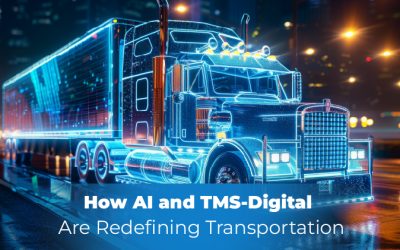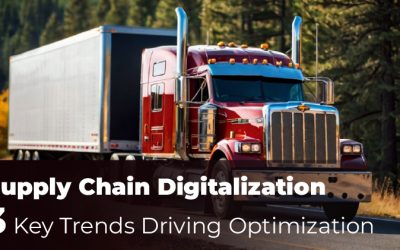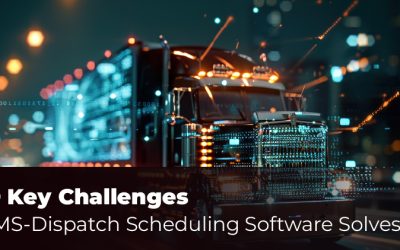
Are you thinking about using a TMS software to improve your supply chain? Here’s some advice on how to pick the right system for your company. The technology-enabled market for trucking and supply chain management solutions continues to grow as more businesses adopt software solutions to ease the flow of inventory tracking.
With that in mind, this blog post will explore the many benefits of an effective TMS solution. It will also discuss factors for choosing the best TMS software for you, as well as tips on how to find an affordable solution that meets your specific needs.
What is a TMS?
A TMS or Transportation Management System is software for planning, executing, and coordinating the shipment of products. With a TMS, users complete three primary tasks: Find and evaluate the prices (costs) and services offered by the carriers that send a customer’s order, then reserve the shipment and track it through to delivery.
Improved shipping efficiency, cost savings, real-time supply chain visibility, and customer satisfaction are the primary benefits of adopting a TMS.
The main customers of TMS software are Shippers, Carriers, and Truck Fleet Managers. TMS software is also widely used by manufacturers, distributors, e-commerce businesses, wholesalers, retailers, and third-party logistics providers (3PLs).
TMS software is now essential to the entire supply chain. Before making a significant investment, it is crucial to understand TMS Software’s current and future demands. TMS Software ought to grow alongside the business it is being employed in.
 How to Choose the Right TMS Software?
How to Choose the Right TMS Software?
Your TMS software must be seen as a tool for the team rather than a burden. Any operating system that becomes difficult for teams to use tends to be used less productively than intended, making even the most brilliantly sophisticated process useless. This increases manual labor and decreases productivity, which is the exact opposite of why businesses initially invested in TMS Software.
Every business has different needs, but the major organizational factors all function similarly, and some reporting is expected. However, the smaller parts or modules of TMS Software matter most because they enable teams to work efficiently, provide clients with higher service levels, and finish jobs more rapidly.
These essential components of TMS Software make the system more functional and accessible overall, transforming usage from a hassle to a tool. Freeing human resources and cutting expenditures enables more meaningful results to be achieved in less time.
Investing in Future
Spending money on TMS software that can expand to meet a business’s needs is crucial. Organizations or teams may be able to lessen learning curves and continuous discomfort with switching systems by using modular systems that let logistics companies select a level of value.
It’s an investment in your market value and is designed to boost overall growth rather than stall it, like other TMS Software. Consequently, selecting a technology that cannot or will not be integrated into long-term business strategies is a disaster that almost always occurs at the worst possible time.
Modular tech stacks are a stepping stone for your development, eventually enabling you to become a full-service TMS system. Depending on your company’s market strategy, these duties may include but not be limited to:
- Sales
- Operations
- Pipelines and upcoming revenue
- Miles loaded vs. empty
- Grouping by the client state
- Quick data availability
- Robust reporting
- user functionality
- Considerations include new hire training, time to get up to speed, and a variety of other factors
In order to scale your organization successfully, all of these functions must be customer-focused and ready for upgrades.
Conclusion
A TMS system is a great way to improve the flow of inventory and orders between suppliers, manufacturers, wholesalers, and retailers. When choosing a TMS, you’ll need to consider your current needs and long-term goals. You should also evaluate each system based on cost, functionality, ease of use, and customer support. You should also remember that a TMS is more than just a software application. It is a cloud-based solution that includes software, web tools, data analytics, and other functionality for the supply chain management.
TMS-digital is built specifically for your trucking needs with a full integration suite and a platform that connects people, systems, and technology. This is where TMS-digital excels and where TMS Software’s greatest strength lies. From Dispatch or Tickets to Equipment Maintenance, Driver Safety, and IFTA Manager, we’ve got you covered. Thanks to our tech stack, modular solutions, and limitless scalability capacity, you’re in good hands for whichever degree of growth and client success you’re chasing.
Contact TMS-digital today to get a consultation and streamline your business and supply chain.
